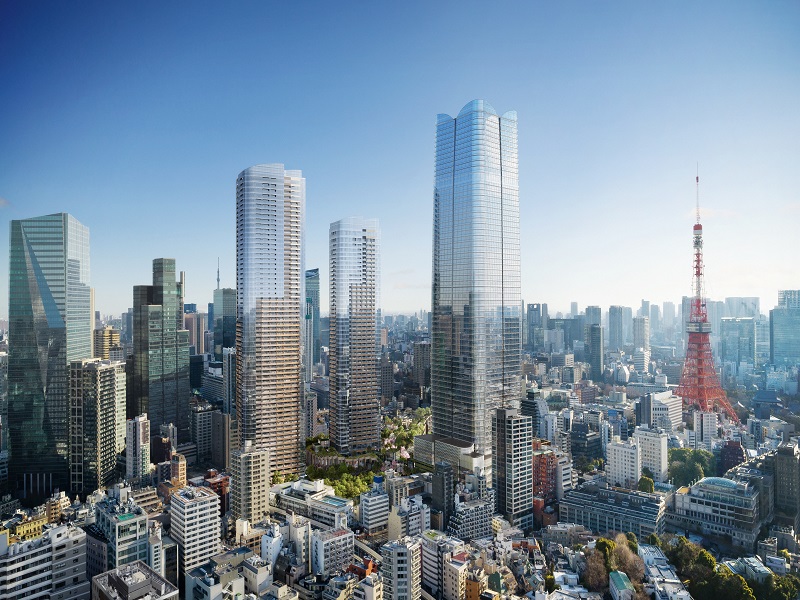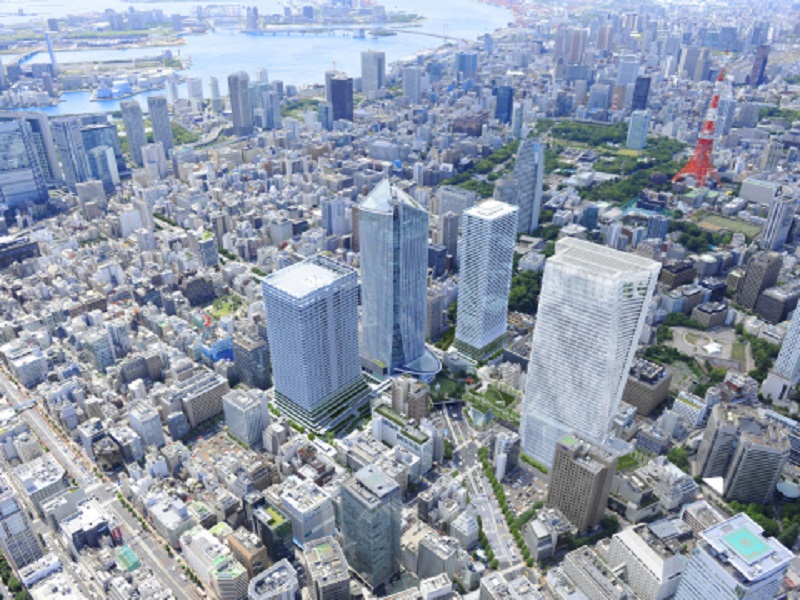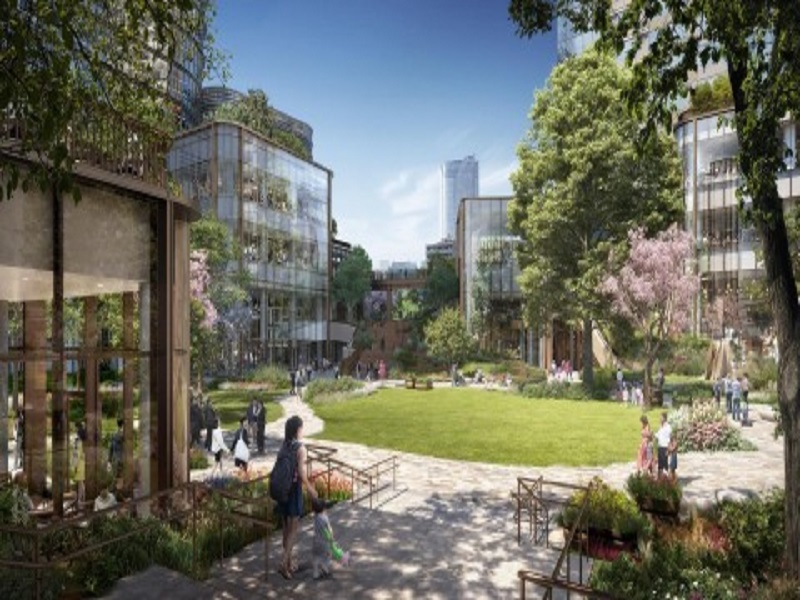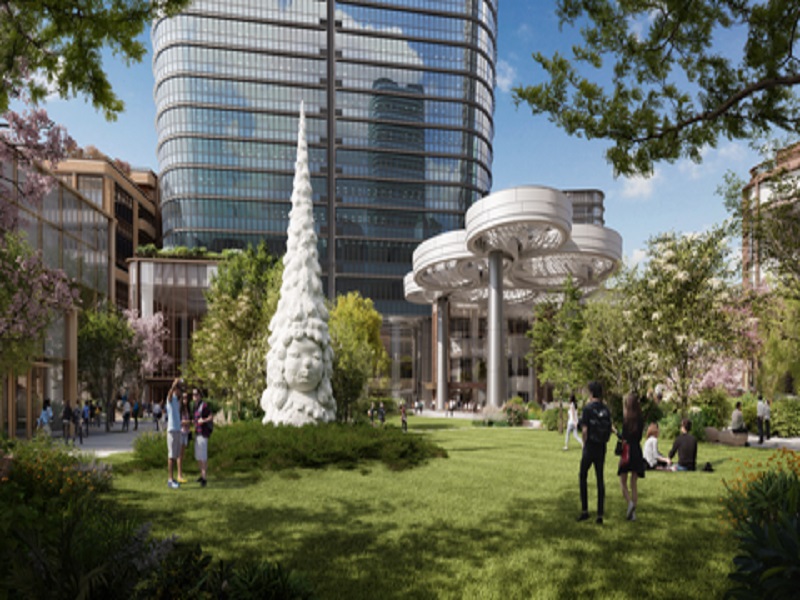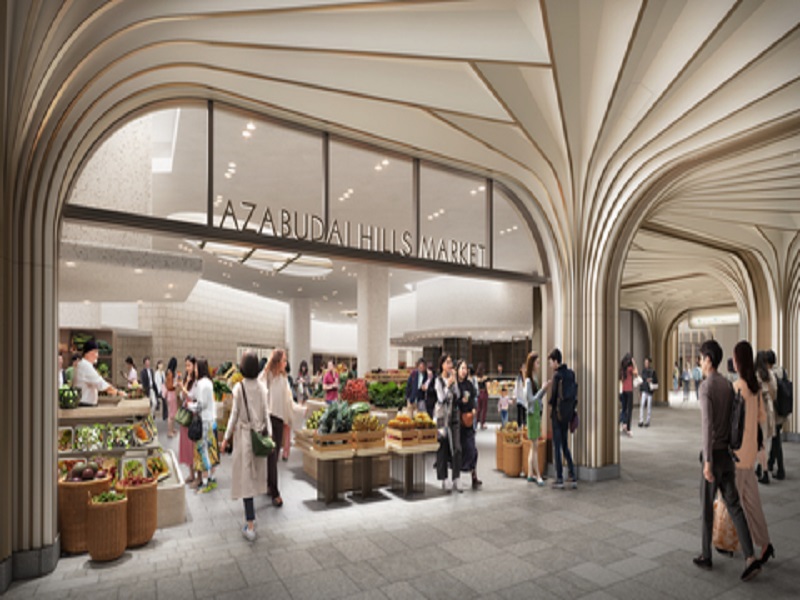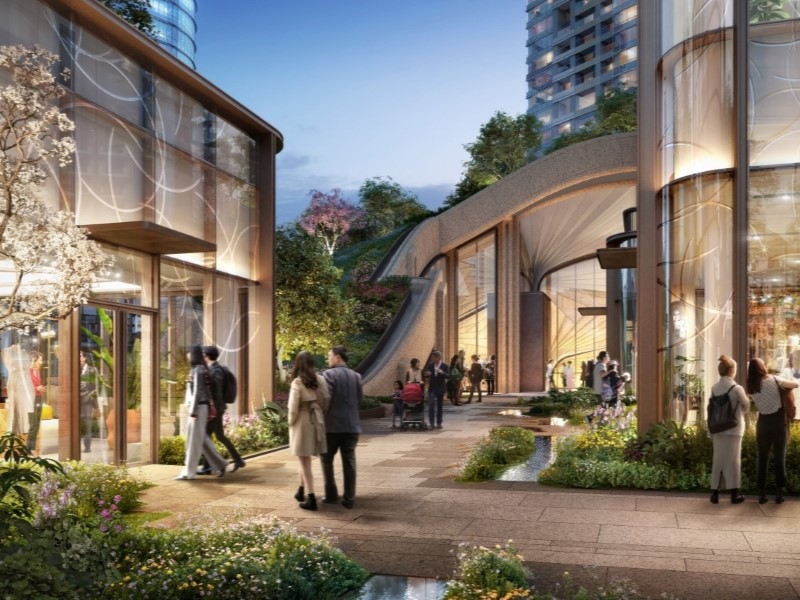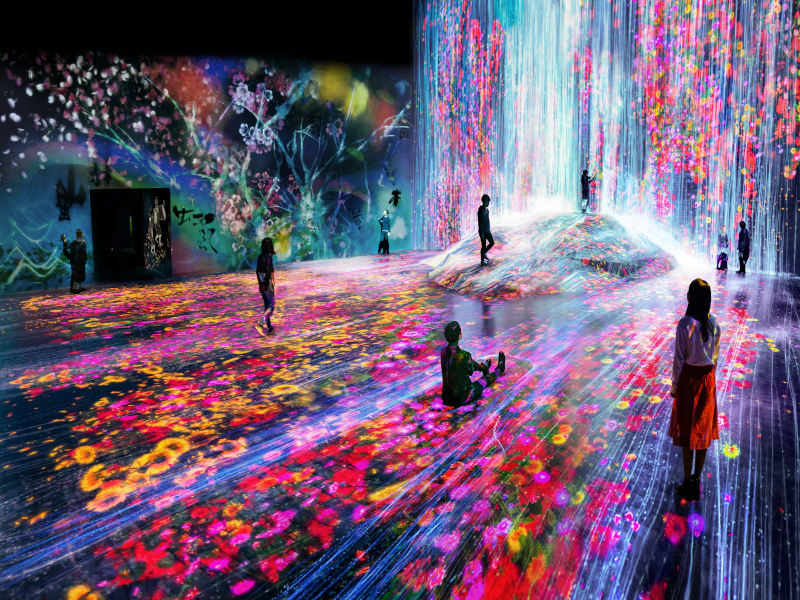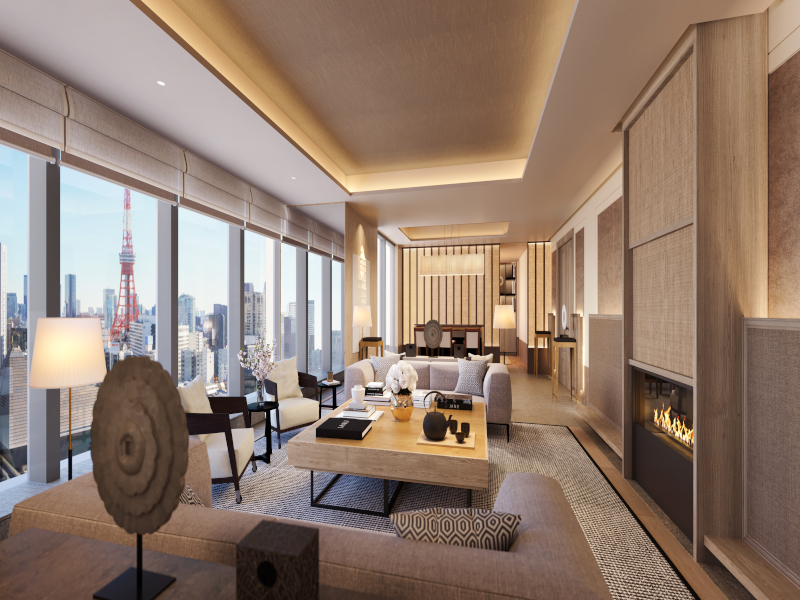Azabudai Hills is an urban development project developed in Central Tokyo, Japan. It was previously known as the Toranomon-Azabudai District Category 1 Urban Redevelopment Project.
The Toranomon-Azabudai District Urban Redevelopment Association owns and manages the project, with Mori Building and Japan Post, a state-owned company, as the lead partners. Mori Building, an urban landscape developer based in Japan, has been appointed as the designated developer for the project.
The mixed-use project, comprising retail, residential and office spaces, was developed with an investment of Y640bn ($4.5bn).
The planning and development of the project commenced 35 years ago in collaboration with 300 landowners. The Council of Redeveloping Cities was established in 1989 to implement the project and the City Plan was approved in 2017.
Construction on the project commenced in August 2019, following the establishment of the Toranomon-Azabudai District Urban Redevelopment Association. The project was inaugurated in November 2023.
The mixed-use complex can accommodate more than 20,000 employees and 3,500 residents, as well as welcomes 30 million visitors a year.
Location of Azabudai Hills
Azabudai Hills is located adjacent to the ARK Hills complex between Roppongi Hills and Toranomon Hills in Central Tokyo, Japan.
The project covers an area of 8.1ha (20 acres) and has a total floor area of approximately 861,700m² (9.2 million square feet).
Azabudai Hills project details
The Azabudai Hills project includes 1,400 residential units, 214,500m² of office space, 23,000m² of retail space, and 24,000m² of green space, including a 6,000m² Central Green, a central square in the middle of the complex.
The project is divided into A, B and C districts. The Mori JP Tower in A District is a mixed-use skyscraper rising approximately 330m high. It offers extensive office space, totalling around 204,000m² with standard floor areas of approximately 4,600m².
The tower also includes 91 luxury residential units under the Aman Residences, Tokyo brand, located on floors 54 to 64. Office spaces occupy floors seven to 52.
The building houses the Keio University Center for Preventive Medicine, Tokyo Venture Capital Hub, and Japan Venture Capital Association, The British School in Tokyo, central Tokyo’s largest international school with approximately 700 students from more than 50 countries; and extensive retail and mixed-use facilities accommodating a wide variety of shops and restaurants.
The B District is divided into B-1 and B-2 districts. The B-1 district includes the 64-storey Azabudai Hills Residence B tower. It is a 240m high building, with a total area of 169,000m². It offers 970 residential units from the sixth to 64th floor, along with office, retail and mixed-use spaces.
The B-2 district has the 54-storey, 270m high Azabudai Hills Residence A tower with a total area of 185,000m². It includes 320 residential units from floors 14 through 53, along with the 122-room Janu Tokyo hotel, Aman’s new sister brand, and retail and mixed-use spaces.
The C District Garden Plaza in Toranomon 5-chome, Minato City, comprises four distinct areas with varied building ground and total floor areas. The C-1 district (Garden Plaza A) covers 4,750m² with a total floor area of 10,590m², reaching a height of 18m, and includes retail facilities, a museum, and parking. It features the Azabudai Hills Gallery, a core cultural promotional facility.
The C-2 district (Garden Plaza B), spans 6,350m² with a total floor area of 31,540m², standing 41m tall, and accommodates residences, offices, retail facilities, and parking.
The C-3 district (Garden Plaza D) has 900m² of ground area and 1,710m² of floor area, with a height of 23m, designated for retail.
The C-4 district covers 1,690m² with a total floor area of 1,810m² and a height of 13m. It includes a temple, private residences, and parking. The Garden Plaza C is located in B-2 district east.
Azabudai Hills design and landscape details
The Azabudai Hills project was designed around the concept of a modern urban village having large open spaces.
The design leveraged the topographical differences of the area and incorporated greenery throughout the site to create green space.
The urban development is filled with trees, flowers, and waterscapes with approximately 320 species of plants. It also includes water streaming throughout the site’s variating elevations, which lead to the Central Green.
Amenities at Azabudai Hills
Azabudai Hills incorporates spas, gyms, sports facilities, hospitals, fitness clubs, restaurants, and grocery facilities to create a world-class living environment.
It also houses a wide range of retail luxury stores such as Hermes, Officine Universelle Buly, Saint-Louis, Dior, Berluti, THANN, Davines, Fueguia 1833 Azabudai, and Linari Baobab.
Several of the food outlets representing Japanese culture include Terakoya Sushisho, Tominokoji Yamagishi, Florilege, The Yellow Company Tokyo, and Tonkatsu Kawamura.
Azabudai Hills Market, a large-scale food market, features 31 of Japan’s leading speciality stores.
The renowned MORI Building DIGITAL ART MUSEUM: teamLab Borderless has been relocated from Tokyo’s Odaiba waterfront.
The Janu Tokyo hotel facing Central Green features a 4,000m² wellness facility, gym, and eight restaurants and bars suitable for family and group gatherings.
Sustainability features at Azabudai Hills
Azabudai Hills is designed to receive a Platinum certification in the Leadership in Energy & Environmental Design (LEED) under the neighbourhood development (ND) category and Building & Design/Core and Shell Development (BD+C) certification.
In addition, Mori JP Tower is designed to receive preliminary WELL precertification in recognition of features such as indoor air quality and walkways throughout the site.
The project uses electricity from renewable sources and complies with the targets set by the Renewable Energy 100, a global corporate renewable energy initiative. In addition, AI is used in the energy centre to ensure efficient consumption.
The heat generated from sewage is incorporated into the heating and cooling system of the building to reduce carbon dioxide emissions by approximately 70tpa.
Rainwater is collected and reused to water the green spaces while wastewater is recycled and reused. Furthermore, water-saving faucets and showers have also been installed across the complex which can help reduce up to 40% water usage.
Contractors involved
The three skyscrapers were designed by architect Pelli Clarke & Partners while the lower levels and the public areas were designed by Heatherwick Studio.
Some of the other architects and designers involved in the project include Sou Fujimoto Architects, Yamashita Sekkei, Nikken Space Design, Yabu Pushelberg, Nihon Sekkei, Marco Costanzi Architects, SCDA Architects, A.N.D, and Winkreative.
The main construction works of the project was undertaken by builders SHIMIZU, Sumitomo Mitsui Construction, and Obayashi.
Switzerland-based chemical company Sika has supplied sealants, concrete admixtures, and liquid applied membrane products during the construction of the project.
Fujitec, a Japanese elevator and escalator manufacturer, has installed a total of 71 elevators and 39 escalators in Azabudai Hills.

